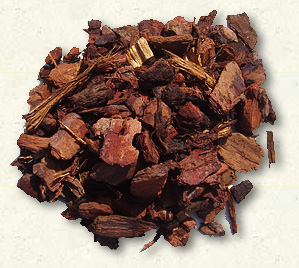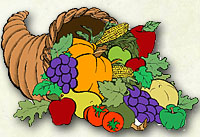


When most people think of organic foods, or for that matter anything "natural," the concept of saving money doesn't simultaneously come to mind. In fact, the opposite may be true. Anyone who has shopped at a health food store knows that organically grown food is often exorbitantly priced, especially when purchased from those "healthy" retail environments so comfortably furnished with unfinished woods, macrame, James Taylor, ferns and flowing variations of ivy.
Despite the trappings, the items on the shelves of such establishments are really not offered freely to the people. The good news is that when grown in your back yard these same food items can be so cheaply produced that within no more than a year your family will realize significant savings-- so much so, in fact, that the great tasting food and health benefits may seem like unforseen perks.
 Not surprisingly a good deal of confusion exists regarding much and compost. Though similar in makeup, they are not quite the same things and serve different but equally important purposes in organic gardens.
Not surprisingly a good deal of confusion exists regarding much and compost. Though similar in makeup, they are not quite the same things and serve different but equally important purposes in organic gardens.
Basically compost is a substance that aids gardeners in creating an ecologically friendly and more productive growing environment for their plants. "Rotting vegetation" would be the short answer. Composting breaks down organic material for use by garden plants.
Compost is decayed, nutrient rich organic material, usually comprised of plant matter and worked into the soil for use as a natural fertilizer. When used as a verb, "composting" refers to the process by which plant matter is systematically decayed in layered piles, accelerating the natural course of development to create more fertile soil for gardening.
Mulch, on the other hand, is made up of plant matter, partially decayed though not  as extensively as compost, which is used on top of soil and around the base of garden plants. Its purpose is to retain moisture, reduce weeds and control the soil's temperature, keeping it warm during Spring and Fall months.
as extensively as compost, which is used on top of soil and around the base of garden plants. Its purpose is to retain moisture, reduce weeds and control the soil's temperature, keeping it warm during Spring and Fall months.
It is not necessay to build or buy containers in which to compost, but making even the most basic of bins will make your job easier and add to your garden's appearance. If you have your heart set on purchasing a "composting bin," there are a lot of products available-- from the most simple bins to elaborately layered vertical bins. When comparing prices, you may want to frequently remind youself that you are purchasing what is essentially a box to hold rotting vegetation.
But all you really need is an area sectioned off from the rest of the garden. Four boards would do it, but with just a little bit of work you can have something just as funtional and aesthetically pleasing as anything you might find in a nursery.
You can use just about any organic matter to make your compost. Many gardeners catagorize their organic ingredients, seperating them into "Greens" and "Browns." These catagories cover half of the four ingredients most important to your compost: Nitrogen, Carbon, Water and Air.
"Greens" refer to the waste that is rich in Nitrogen, such as grass clippings, small twigs, coffee grounds, animal manure.
"Browns" refer to carbon sources-- waste products whose nitrogen is spent.
Many gardeners feel that a perfect mixture contains 50% Green and 50% Brown. Here is a list of necessary compost ingredients:
